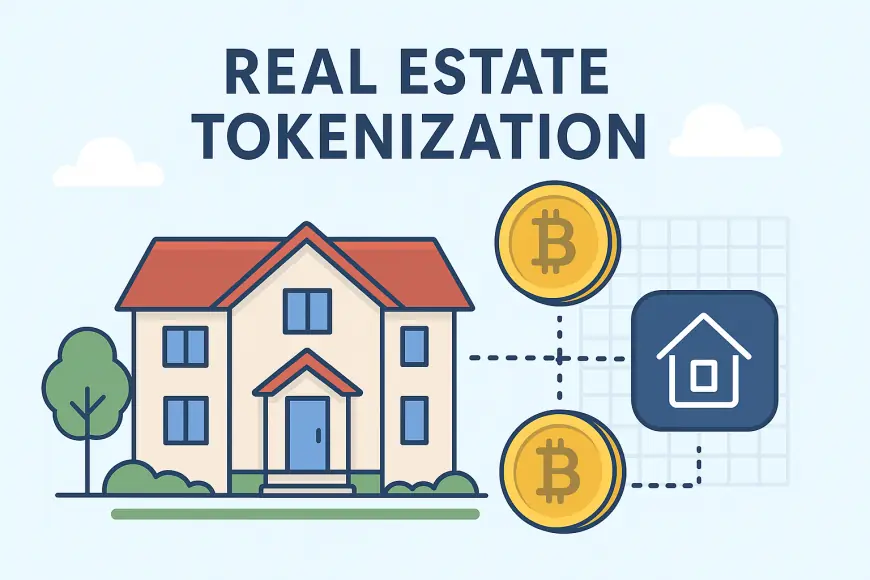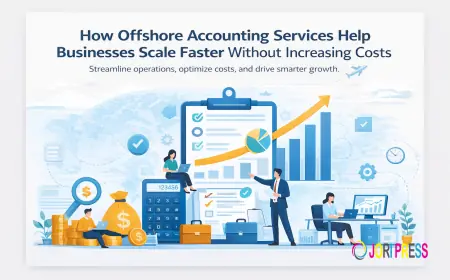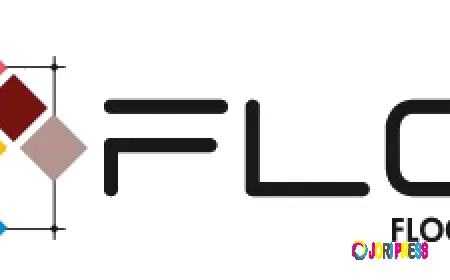How Real Estate Tokenization Development Services Unlock Liquidity?

Real estate has long been considered one of the most stable and lucrative investment classes. Yet, it comes with a fundamental challenge illiquidity. Traditional real estate markets often require high capital, lengthy transaction processes, and legal complexities, making it difficult for investors to enter or exit quickly. This is where real estate tokenization development services are revolutionizing the industry. By leveraging blockchain technology, property ownership can be represented as digital tokens, enabling fractional ownership, seamless transactions, and a vibrant secondary market. This transformation unlocks liquidity in an asset class historically bound by barriers. In this blog, we’ll explore how tokenization unlocks liquidity in real estate, its advantages, and the role of development services in creating robust platforms for this fast-evolving ecosystem.
Understanding the Concept of Real Estate Tokenization
Real estate tokenization is the process of converting property ownership rights into digital tokens that exist on a blockchain network. Each token represents a portion of the property, enabling multiple investors to share ownership. This is similar to purchasing shares in a company, except here the tokens represent fractional ownership of real estate assets.
For instance, instead of one investor purchasing a $10 million commercial property outright, the property can be tokenized into 10 million tokens valued at $1 each. Investors worldwide can then buy tokens according to their budget, creating opportunities for both small and large participants. This concept not only democratizes real estate investing but also creates avenues for liquidity, something that has traditionally been absent in this market.
The Liquidity Challenge in Traditional Real Estate
Liquidity refers to the ease with which an asset can be converted into cash without significantly affecting its price. Traditional real estate often struggles with liquidity due to several reasons:
-
High Entry Barriers: Real estate transactions usually require substantial capital, limiting access for retail investors.
-
Time-Consuming Processes: Buying or selling a property often takes weeks or months, involving intermediaries, paperwork, and legal compliance.
-
Limited Buyer Pool: Only a few investors can afford large properties, further restricting liquidity.
-
Regulatory and Geographical Constraints: Investors are often limited to purchasing property within their jurisdiction due to legal or tax restrictions.
Because of these challenges, investors often hold real estate for years before seeing returns, making it less attractive compared to liquid assets like stocks.
How Tokenization Unlocks Liquidity in Real Estate
Tokenization directly addresses these liquidity challenges by introducing fractional ownership and blockchain-powered secondary markets. Here’s how:
-
Fractional Ownership
Tokenization lowers the entry barrier by allowing investors to purchase tokens worth only a fraction of a property’s value. Instead of committing millions, investors can diversify with smaller amounts. This increases the number of participants in the market, thereby improving liquidity. -
Secondary Market Trading
Tokenized assets can be listed on digital exchanges where investors can buy and sell tokens in real time. This creates a vibrant marketplace, giving investors the ability to liquidate their holdings instantly, similar to stock markets. -
Global Investor Participation
Blockchain removes geographical barriers, allowing investors from around the world to participate. This global pool of buyers and sellers enhances liquidity by expanding demand. -
Faster Transactions
Smart contracts automate ownership transfers, eliminating intermediaries and reducing transaction times from weeks to minutes. Faster transactions directly boost liquidity. -
24/7 Accessibility
Unlike traditional real estate markets that operate within certain timeframes, blockchain-based tokenized markets function round the clock, making assets available for trading at any time.
Role of Real Estate Tokenization Development Services
Developing a secure and efficient platform for real estate tokenization requires specialized expertise. Real estate tokenization development services bridge the gap between blockchain technology, legal compliance, and investor-friendly platforms. Their role includes:
-
Smart Contract Development: Creating programmable contracts that govern transactions, payouts, and compliance.
-
Token Standards: Designing tokens based on popular blockchain standards (like ERC-20, ERC-721, or ERC-1155) to ensure interoperability.
-
KYC/AML Integration: Embedding regulatory compliance mechanisms into the platform for safe and lawful participation.
-
Fractionalization Modules: Enabling seamless division of real estate assets into multiple tokens for fractional ownership.
-
Secondary Market Support: Providing exchange capabilities for trading tokenized assets.
-
Custody Solutions: Securing tokenized assets through wallet integration and blockchain security protocols.
Without these services, real estate tokenization would lack the technological backbone required to ensure trust, transparency, and liquidity.
Benefits of Liquidity Through Real Estate Tokenization
Unlocking liquidity through tokenization offers significant benefits for both investors and asset owners:
-
Access for Small Investors: Retail investors can participate in high-value properties, previously accessible only to institutions.
-
Portfolio Diversification: Investors can spread funds across multiple properties, reducing risk.
-
Exit Flexibility: Token holders can sell their share anytime, without waiting for a property’s full sale.
-
Attracting Global Capital: Tokenization enables cross-border investment, bringing more liquidity into the market.
-
Enhanced Transparency: Blockchain records all transactions immutably, boosting investor confidence.
These advantages make real estate a far more appealing asset class in the digital era.
Types of Real Estate Assets Suitable for Tokenization
Not all real estate assets are equal, but tokenization works across multiple categories:
-
Commercial Properties
High-value office buildings, shopping complexes, and warehouses are ideal candidates for tokenization, as fractional ownership enables more participants. -
Residential Properties
Single-family homes, condominiums, and rental properties can be tokenized for broader investment. -
Luxury Real Estate
High-end villas and resort properties can attract international buyers through tokenization. -
Infrastructure Projects
Large-scale developments like highways, energy plants, or ports can be tokenized to raise funds efficiently. -
Hospitality Sector
Hotels and resorts benefit from tokenization by providing investors access to revenue-sharing models.
By diversifying across asset classes, tokenization increases liquidity opportunities across the real estate spectrum.
Secondary Markets: The Key Driver of Liquidity
The emergence of secondary trading platforms is pivotal to unlocking liquidity in tokenized real estate. Unlike traditional assets where investors may be locked in for years, token holders can quickly sell their holdings on exchanges.
-
Decentralized Exchanges (DEXs) enable peer-to-peer trading of real estate tokens without intermediaries.
-
Centralized Exchanges (CEXs) provide regulated platforms for token listing and trading, increasing trust among institutional investors.
-
OTC Markets also allow large investors to trade bulk tokens privately.
These marketplaces ensure that tokens maintain active trading, creating real-time liquidity and boosting confidence in the system.
Overcoming Challenges in Unlocking Liquidity
Despite the benefits, tokenization is not without challenges:
-
Regulatory Uncertainty: Different countries have varying rules regarding digital assets and securities.
-
Market Adoption: Many traditional investors remain hesitant due to lack of familiarity with blockchain.
-
Valuation Transparency: Determining token value requires proper auditing and transparent valuation methods.
-
Technical Security: Platforms must prevent hacks, fraud, and loss of assets.
Real estate tokenization development services play a crucial role in mitigating these challenges by integrating compliance frameworks, advanced security measures, and user-friendly interfaces.
Case Studies: Real-World Examples of Liquidity Through Tokenization
-
St. Regis Aspen Resort, USA
The luxury resort raised $18 million by tokenizing shares, enabling investors worldwide to participate. Token holders enjoyed liquidity through trading on secondary platforms. -
BrickMark, Switzerland
The firm tokenized a prime commercial building in Zurich, worth $134 million, allowing fractional ownership and increased liquidity for investors.
These case studies demonstrate how tokenization creates real-world liquidity, proving its potential for global adoption.
Future of Liquidity in Real Estate Tokenization
The future of real estate tokenization lies in expanding liquid markets where digital property tokens are seamlessly tradable across platforms. With advancements in blockchain interoperability, tokens issued on one network could soon be traded across multiple blockchains.
Additionally, institutional adoption is growing, with banks, hedge funds, and governments exploring tokenization. As legal frameworks mature, liquidity in real estate markets will become comparable to stock exchanges.
Conclusion
Real estate has always been an attractive investment, but illiquidity has kept it out of reach for many investors. With real estate tokenization development services, this barrier is being dismantled. By enabling fractional ownership, global participation, and secondary market trading, tokenization transforms real estate into a highly liquid, accessible, and transparent investment class.
For asset owners, it means easier fundraising and broader investor participation. For investors, it means accessibility, flexibility, and diversified opportunities. Ultimately, tokenization is not just unlocking liquidity it’s reshaping the entire future of real estate investing.
What's Your Reaction?
 Like
0
Like
0
 Dislike
0
Dislike
0
 Love
0
Love
0
 Funny
0
Funny
0
 Angry
0
Angry
0
 Sad
0
Sad
0
 Wow
0
Wow
0

















































